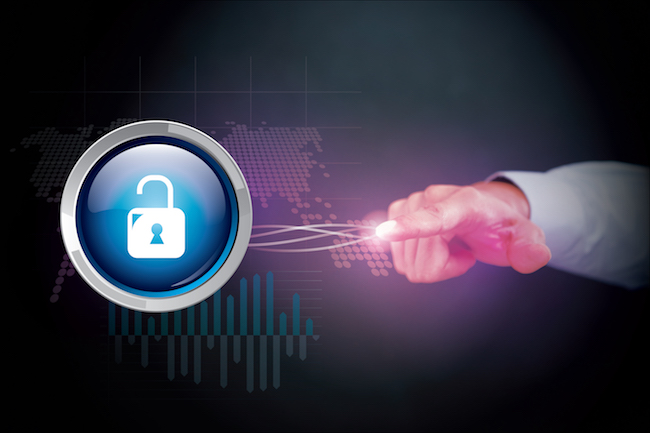
A VPN or Virtual Private Network is a tool that allows you to create a secure connection to another network over the internet. All devices connected to a VPN see their data go encrypted through this virtual network safely, meaning that the network at the other end of the connection will communicate with the VPN instead of you directly.
Following this, you can use the internet as if you were present in the specific region the VPN is located, which is useful for accessing restricted content in the region you are currently living in. For example, you can access the catalog from a particular country’s exclusive service by creating a secure connection to a VPN that shows an IP address from that same country. Once your computer, smartphone, or tablet is connected to the VPN server, the catalog service (or any service in particular) will see you as if you were connected from the VPN server’s country and not your actual location.
Moreover, a VPN is a private and virtual network as said in its name, so that all traffic going over that network is secured and protected from dangerous third parties. This feature can be really useful when we are connected to public Wi-Fi. Every person using the Internet on a regular basis should seek basic knowledge about what is a VPN and how does it work.
A VPN can be a useful tool for many reasons, even for Internet users who only access the most basic online services. Therefore, we go in-depth about the importance and relevance of virtual private networks in this article, for you to learn about the advantages of using a VPN and why you should be using them.
Virtual Private Network and IP addresses

To learn how does a VPN work it’s necessary to know what an IP address is. An IP address (Internet Protocol address) is a unique number that identifies a computer that is connected to the internet.
Your IP address number is a 32-bit number divided into four 8-bit combinations that reference the country you are connected from, or the kind of network you are using. An example of a private IP address is 172.16.254.1. An IP address is necessary for data to travel around the Internet, but sadly, your device’s IP address also makes your geographic location available for every website you try to access.
Because of that, VPNs are important. VPN providers have servers located in many different locations in the world, which makes it possible to redirect your virtual information’s traffic. This way you can use another IP address from those servers and hide your actual IP address. That is to say, a VPN will allow you to navigate the web incognito.
At the same time, a VPN service applies encryption to your data traffic. This way your personal information remains protected and you can access the Internet anonymously.
Why you should use a VPN service?

Encrypt your data is the primary function for a VPN, and that means a series of benefits for any Internet user. A VPN service is not only for Internet geniuses, but it is also a tool that every person connecting regularly to the Internet should know. The following includes every-day examples regarding the use of virtual private networks.
Accessing a work network while on a trip
VPNs are frequently used to access the work network by professionals while they are away either for work reasons or vacations. These professionals can access the work network safely through a VPN tunnel because all resources are kept in the cloud.
Accessing a home network while on a trip
Similarly to accessing a work network, through a VPN, we can access our computer at home as if we were using our local network.
Hide your browsing activity
For instance, if you are connected to a public Wi-Fi at a restaurant, mall or similar places, other people can also connect their devices without a password. In this case, every website you visit without HTTPS connection will be visible for those who know where to look. On the contrary, the information is not visible when using a VPN.
Accessing sites with geographic blocks
The most common way to access a site that is not available in your country or region is by using a VPN. Specifically, a VPN server that should be located in the country where access is allowed, thus communicating with the site in your place and allowing you access. Using virtual private networks is a very popular practice in China where there are over 3,000 blocked websites.
Avoiding Internet censorship
A VPN also works great for accessing without inconveniences certain websites blocked by governments.
Advantages of Using VPNs
Now that it is clear what a VPN is and what they do, it’s time to explain the advantages of using this technology to add up to the reasons why Internet users should learn about them.
- Virtual Private Networks are versatile, as they work on all applications. A VPN can route all Internet traffic, unlike proxy servers that can only be used on your web browser and a few more applications where you can access advanced configuration.
- Additional security in Wi-Fi access points, as long as the connection is encrypted.
- A VPN is easy to use, as they connect and disconnect from a server easily. Once the VPN configuration is set, you can turn the connection on and off with no further work.
- Faking your location to access content restricted to a certain region or avoiding censorship. A VPN is an effective and easy way to do this.
- Extra security layer to protect your personal information. The encrypted connection of a VPN works as a shield to prevent the exposure of your traffic in public and private networks. However, VPN servers do have access to your information, so make sure you are using a reliable VPN provider, otherwise, your information can be compromised.
The usefulness of virtual private networks makes them an invaluable tool for both beginners and expert Internet users. Whether it’s for specific tasks such as accessing restricted content or simply enjoying additional security while surfing the web, every person should make VPNs a part of their daily lives while surfing the web.
